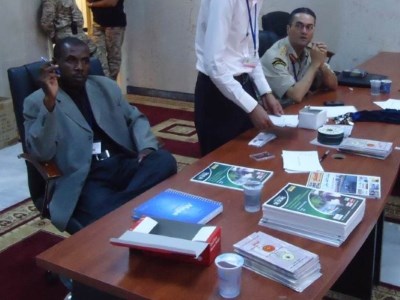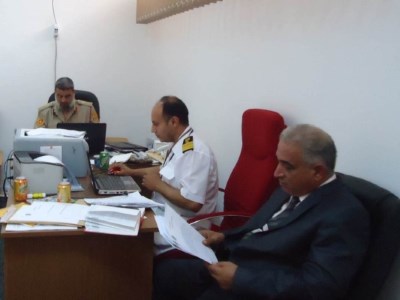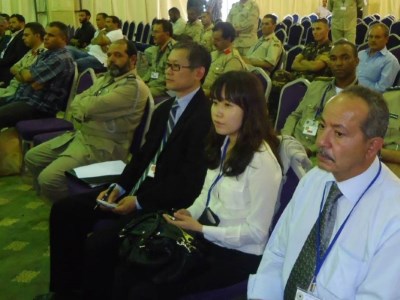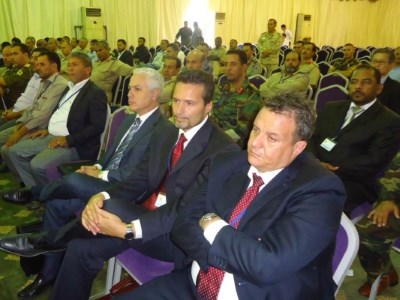The war is changing and taking new forms uncharacteristic, and this time the events were completely different to show the fingerprints of the Israeli enemy, who changed in his mechanisms and tactics suddenly in a strong operation in which the war
was not in the form of a ground incursion with armored vehicles and infantry, nor an attack by fighter aircraft, air raids, and a naval attack that was a confusing and unprecedented attack in which modern technologies blended with the element of security penetration so that he was able to carry out a large-scale and very accurate explosion that targeted the means of communication used by Hezbollah elements of the pager devices. Pager and walkie-talkies in their various locations in a surprise strike.

The event began with several explosions at around 3:30 local time on Tuesday 17/9, which occurred in different areas in Lebanon, including the southern suburbs of Beirut, and were successive and simultaneous, and it turned out that their source was pagers and wireless devices of the ICOM V82 type, in a painful and unexpected blow to the party's elements and leadership. The pager is a small electronic device dedicated to communications, easy to carry and used to receive short messages or the number of the person trying to contact the device. Pagers have some advantages and disadvantages in terms of privacy compared to mobile phones, and their operating technology is relatively old, as they are considered one-way, meaning that they are only a receiver (i.e. they do not send any information to the base station), and therefore their location cannot be tracked. They were commonly used before the spread of mobile phones to send and receive short text messages or alerts, and this may be what prompted the party to use them in its communications between its elements, as it is believed that they were relatively safe for the bearer in terms of hacking and eavesdropping compared to other modern communication devices.
Images circulated in the media showed that the pager devices used in the operation included in the order received by Gold Apollo that included about five thousand devices, most of which were Apollo Gold AR-924. It seems that the shipment owned by Hezbollah, which was imported in recent months, was subjected to an operation that required a tremendous amount of skill that no country in the world, and perhaps even the United States, can achieve. Batteries bombs or strips of material were planted. High-powered explosive or similar devices on those devices imported and distributed to party members.

The material was likely planted in advance near or inside the batteries of Taiwanese-made pagers, perhaps during the production process and perhaps during the supply chain, until Hezbollah received it and it completely detonated when it received coded messages that triggered the explosive material simultaneously. The New York Times reported that the pagers that simultaneously exploded in the hands of Hezbollah members on Tuesday were manufactured in Taiwan and were booby-trapped by Israel before they reached Lebanon.
In fact, there is no confirmed information about what happened, but what is being circulated are opinions that may be true or false, as there is an opinion that says that a plastic explosive material, RDX or PETN, or a mixture of both, was used in the operation. It is one of the most powerful explosive materials, and has a high explosive speed, and small quantities of it can fragment and cause a deadly and effective explosion, which increased the danger of its results on individuals. There is an opinion that the attack targeted lithium batteries and the explosions resulted from a technical breach of the devices' algorithms to detonate the batteries remotely, as lithium batteries are the denominator of all the devices that exploded, such as pagers, wireless communication devices, fingerprint devices, solar energy devices, Dell computers, and iPhones. This opinion reinforces that what happened was a security breach and that the act went beyond being described as an intelligence bombing operation to reach the level of a terrorist act and a war crime that occurred with premeditation and deliberation.
The impact of this attack was widespread, with 23 people killed so far and more than 2,800 injured, 200 of them in critical condition. Some of the victims included civilians who were not affiliated with Hezbollah and were present at the time of the explosion in areas close to the party’s members. Sayyed Nasrallah described the strike as harsh, painful and unprecedented, but it will not break or achieve victory for the enemy. In a quick move to avoid further injuries, the party informed all its members to immediately abandon these devices as a precautionary measure to avoid what might happen in the future, especially since the breach could be greater than that.

In a denial by the manufacturing company of the incident, the Taiwanese company Gold Apollo, which manufactures the devices, denied its involvement in the case, explaining that the explosive Hezbollah communications devices were not manufactured by it, and at the same time acknowledged that the devices bear its trademark and were manufactured in Norway. The attack revealed a major security breach in Hezbollah and the Lebanese state apparatus in general, because accessing a shipment of thousands of devices and booby-trapping them is not an easy matter, especially since the party intends to use them to escape the monitoring and eavesdropping operations it is exposed to by its archenemy. Here, many questions arise about the importance of adhering to security instructions and securing the party's communications and communications systems, which are considered the backbone of the organization, and about the logistical supply chain that deals professionally and confidentially with planning, organizing, implementing and monitoring all operations related to the supply, distribution, transportation and storage of materials and products that have been found to be hacked. The best way to avoid this is to deal with this breach quickly and confidentially.
The media published a previous letter by Sayyed Hassan Nasrallah, Secretary-General of the party, warning against the use of mobile phones and communication devices and considering them a lethal agent of the enemy, and since October 2023, Israel has succeeded in carrying out successful assassinations of military leaders in southern Lebanon, and these operations were carried out based on accurate intelligence information, and reflected that there is a wide penetration of the party that there seems to have been no decisive measures to prevent it in the future.

The operational evaluation of the attack is considered successful and achieved a momentary victory for the enemy, and although it is a demonstration of the enemy's intelligence power and its ability to penetrate and organized action, it did not achieve its goal of demoralizing the party's fighters and their confidence in their leadership, and this is the most important.
The attack remains the most prominent and boldest event to strike Hezbollah elements in their stronghold since the start of the Israeli war on the besieged Gaza Strip and after the crushing attack by Hamas elements on the settlements in the Gaza Strip. It is also considered a turning point in the conflict between Hezbollah and Israel, and will reshape the security dynamics in the region. According to statements by the party’s leaders, the party’s response will be retaliatory to the enemy’s surprise attack.








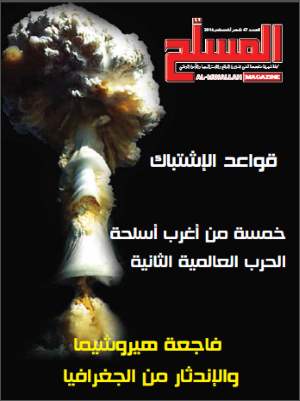

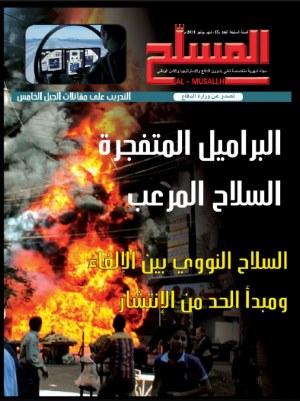
 English
English  العربية
العربية 

